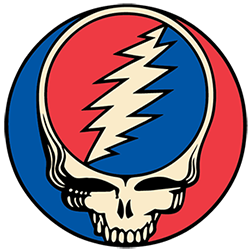
Sound Starters
We’re lucky to live at a time where musical diversity is an exponentially growing phenomenon, truly unlimited, available to us at the press of a button. It seems like every day you hear of a new subgenre, a new artist pushing the boundaries of sound, a new mixture of melodies you could have never imagined. But things haven’t always been this way. The further back you go, the more narrow the options were—pioneers were opening doors the likes of which are almost impossible these days. At the heart and soul of this acoustic advancement, Black musicians have helped found darn near every genre of American music you can think of. While the list is endless, this mix features ten Black musicians who shaped music, changed history, and wove a thread of collective progress through the soundscape of our lives.
Billie Holiday with "I’ll Be Seeing You"
Inarguably, Billie Holiday’s unique croon and improvisational style cement her as one of the greatest singers of all time. Frank Sinatra himself once said “It is Billie Holiday who was, and still remains, the greatest single musical influence on me.” But Holiday’s influence went far beyond bending notes. Her breakout hit, a protest song called “Strange Fruit,” is said to have been a catalyst for the Civil Rights Movement. From the dimly lit depths of a New York nightclub, Holiday truly changed the course of history.
Miles Davis (feat. John Coletrane, Cannonball Adderley, and Bill Evans) with "So What"
If jazz is America’s one true original art form, then Miles Davis is the master craftsman that brought it to the forefront of culture. Easily one of, if not the most, influential artists of their respective genre, his evolution of music paved the way for rock, funk, and hip hop to branch off into their own art forms.
Sister Rosetta Tharpe with "Strange Things Happening Every Day"
Chuck Berry may get credit for popularizing rock, but Sister Rosetta Tharpe got it rolling in the first place. With a background in gospel, a young Tharpe picked up an electric guitar in the late 1930’s and never looked back. Mixing elements of blues, folk, and swing, the “Godmother of Rock and Roll” set the stage for musicians ranging from Elvis to Meat Loaf.
Nina Simone with "Feeling Good"
Beyond having one of the most versatile, powerful, and recognizable voices in history, Nina Simone was an outspoken civil rights activist who used her platform to rally for equality, including a performance at the famous Selma to Montgomery march in 1965. Inspiring genre-defying artists to this day, Simone remains one of the most influential singers of our time.
James Brown with "Get Up Offa That Thing"
Soul music had been well established by the 60s when James Brown, himself known as the “Godfather of Soul,” decided he was going to mix things up a bit. By emphasising rhythm and syncopation (those fun little accents between beats), Brown took his melody-driven soul sound and created the most danceable music the world had ever seen: funk. If you feel like you’ve heard his tunes all over, it’s because you have—over 8,000 songs have sampled James Brown’s music making him the most sampled artist of all time!
Aretha Franklin with "Respect"
Every pop singer born after 1950 owes a debt to Aretha Franklin for laying out a roadmap to success. Taking her gospel background and pairing it with the funky sounds of Muscle Shoals, Aretha dominated the pop charts, racking up 73 entries on the Billboard Top 100. In 1987, she became the first woman to be inducted into the Rock & Roll Hall of Fame, an honor which rivals her performance at President Barack Obama’s first inauguration.
Jimi Hendrix with "Voodoo Child (Slight Return)"
As far as rock gods go, Hendrix more than earned his seat in the pantheon during his short but explosive career. At a young age, Hendrix had trouble finding left-handed guitars, so he resorted to flipping right-handed ones upside down and restringing them. This approach gave his picking a unique sound and allowed him to bend notes others couldn’t (along with a number of other distinctive qualities). By adding innovative combinations of distortion, feedback, and other amp-driven characteristics, Hendrix arguably evolved the guitar game more than anyone before or since.
Stevie Wonder with "Superstition"
The genius of Stevie Wonder is staggering, but he was clearly aware of it at a young age, releasing an album called “Recorded Live: The 12 Year Old Genius” at age...well, 12 obviously. His Billboard Hot 100 number-one hit “Fingertips” made him the youngest to reach that height, but at just 13 he was only getting started. Album after album of hits, often with Wonder playing every instrument himself, lead to a whopping 22 Grammy awards. Wonder’s influence extended into political activism, notably with a 1980 campaign to make Martin Luther King Jr.'s birthday a federal holiday. With a Presidential Medal of Freedom, upwards of 100 million albums sold, and a Hollywood Walk of Fame star to his name, Stevie Wonder set the bar of success to which today’s musicians strive.
Prince with "Let’s Go Crazy"
Most prolific artists walk to the beat of their own drum, but Prince took that idea to new heights. Defying gender norms, astonishing crowds with his electric live performances, and thoroughly sticking it to the record label industry, his no-holds-barred lyricism led to the creation of the infamous Parental Advisory sticker. Prince played over 30 instruments and took a heavily hands-on approach to music production, continuing to record and tour until his surprising death in 2016. His estate has continued to release posthumous projects to this day.
Run D.M.C. with "It’s Tricky"
“Rapper’s Delight” is considered the first mainstream hip hop song, but the Sugarhill Gang could not have predicted what the genre would become with the work of Run D.M.C. Moving away from the danceability of their funk and R&B predecessors, Run D.M.C. took hard-rhyming hits to a new level with pared-back beats, street-influenced lyrics, and a much more “hardcore” sound. The explosion of East Coast hip hop, and the genre in general, followed the blueprint laid out by these early M.C.’s and never looked back.


























